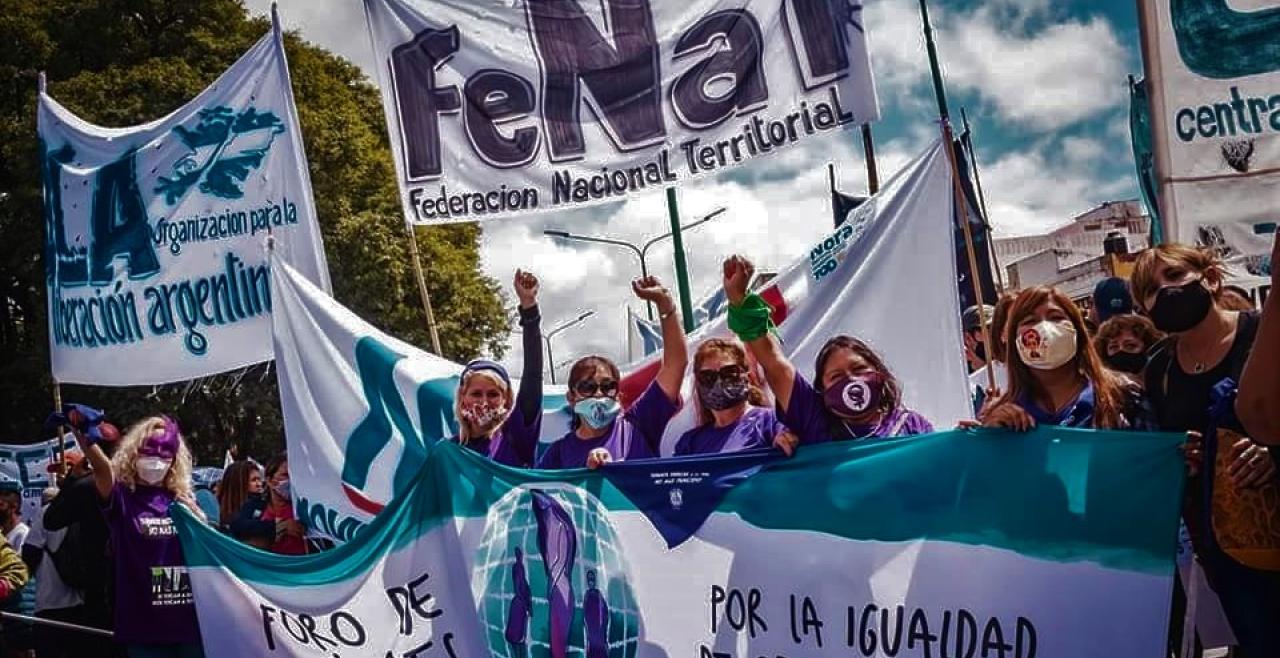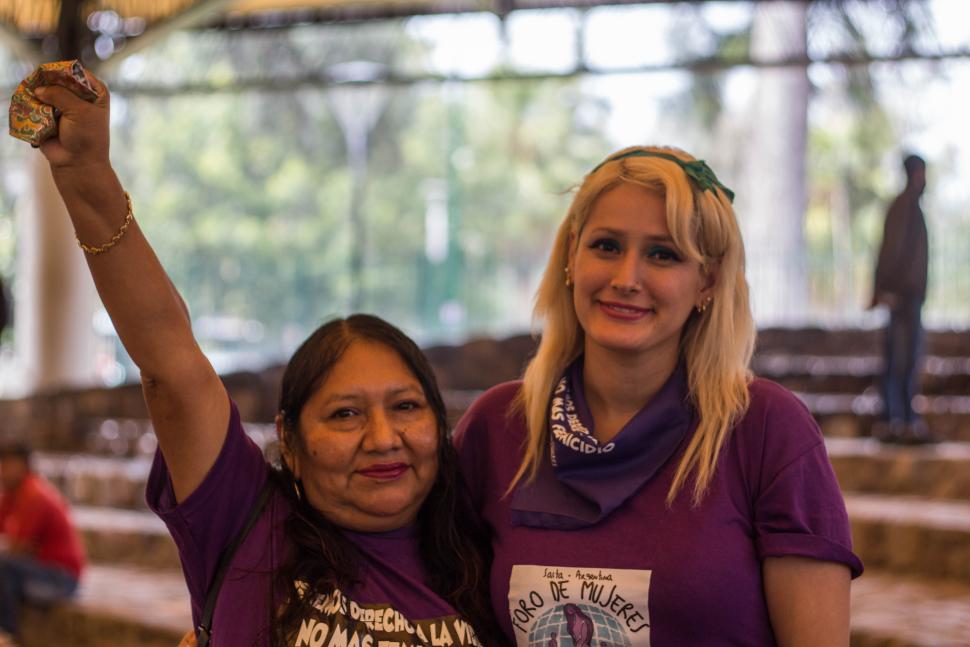A community’s fight to end gender-based violence in Salta, Argentina

SALTA, Argentina - "What do I do with this paper?" Elizabeth Giménez asked herself. She had just been granted a court protection order that legally prevented her husband and son from approaching her after years of enduring their beatings and humiliations. But, like many survivors of violence, she wasn’t sure how the protection order worked or what came next.
That was when she overheard a group of women at the table next to her speaking about gender-based violence. They were from the Women's Forum for Equal Opportunities, a civil society partner of Spotlight Initiative that fights for women’s rights. They were able to explain what the order meant and the options available to protect herself from her attackers if they did not comply.
Today, Elizabeth calls these women her "companions and sisters".
Universal problem, local solutions
Sadly, Ms. Giménez’s experience of violence is not uncommon. During 2020, Argentina registered one femicide every 35 hours, according to the National Registry of Femicides of the Supreme Court of Justice. The same year, 11 women were murdered in Salta alone.
Often, women experiencing violence are not informed how to find help. "I didn't know what to do, who to turn to, where to run," says Alexandra Palomo, Vice President of the Women's Forum for Equal Opportunities and Director of the Directorate of Women, Gender, Diversity, Children and Family of the municipality of La Merced, in the province of Salta. Ms. Palomo has first-hand experience of violence, having left a violent relationship herself.
“Having people who provided me with support, listened to me and believed me was fundamental [to my recovery],” she says. “That is what we do today at the Forum. There is not a single woman who has come here for assistance who has not shared a cup of tea, a mate cocido or a coffee with us. I grew up in a macho environment and it wasn’t until I met the women at the Forum that I began deconstructing all that.”
“Having people who provided me with support, listened to me and believed me was fundamental [to my recovery].” - Vice President of the Women's Forum for Equal Opportunities Alexandra Palomo.
The experiences of Ms. Giménez and Ms. Palomo show why it’s essential for the state and civil society organizations to work hand in hand. Laws and policies that protect vulnerable groups are important, but they can only be effective when people understand their rights and know how to navigate the legal system.
Spotlight Initiative is supporting the Forum’s work via a grant that’s allowed the organization to train more activists to assist survivors of violence and acquire the technology they need to manage cases. The Forum has now systematized case records and is using cell phones from the grant to connect with survivors during the pandemic.
“The Initiative contributed in a very important way to our organization,” explains Cecilia Cantoya, who is part of the Forum's assistance team. “It allowed us to access fundamental technological resources for pandemic care.”
Reaching women in isolation
Among other activities, the Women's Forum for Equal Opportunities provides assistance to survivors of violence by creating women-led community networks.
“In the province of Salta there are many places far from the capital and municipalities where there is no internet, telephone line or WhatsApp,” explains the President of the Forum, Irene Cari. “For this reason, it is very important to have community networks [that survivors can turn to].”
These networks provide person-to-person support and connect women with legal services.
“We come into a place, contact local NGO leaders and community centres, and look for the leaders in these neighbourhoods,” Ms. Cari explains. “Then we add these people to our network and train them on gender issues so that they’re able to support women experiencing violence.”
"We are resilient women who have overcome exclusion and poverty and today we look in the mirror and see a strengthened grassroots organization." - President of the Women's Forum for Equal Opportunities Irene Cari
Empowering Civil Society Organizations
Ms. Cari, Ms. Palomo and Ms. Cantoya agree that the work they had been doing had a distinct ‘before’ and ‘after’ phase.
Everything changed radically in March 2009, when the Comprehensive Protection Law to Prevent, Punish and Eradicate Violence Against Women was introduced. The Spotlight Initiative has worked hard to strengthen this law and ensure that it guarantees CSOs more power to assist and protect women who suffer violence.
"Law 26,485 has given legitimacy to the activities that CSOs have been carrying out to prevent, assist and eliminate violence against women," explains Ms. Cantoya.
Ms. Cari elaborates: “It allowed us to make complaints and demand what we lacked for the care and protection of women in violent situations. It also gave us the possibility of making agreements with municipalities and more funds to care for victims.”
However, she clarifies that the law "is not enough" and says more must be done to better reach women and girls in Indigenous communities, who often struggle to access services.
Still, Ms. Cari is hopeful about the future. "We are resilient women who have overcome exclusion and poverty and today we look in the mirror and see a strengthened grassroots organization," she says. "Because when women meet, we speak out and never give up on each other."
By María Isabel Guelfo

